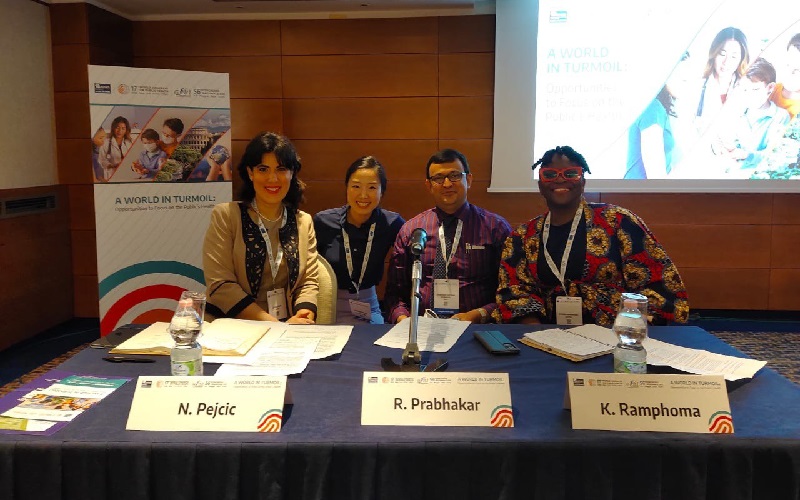The World Federation of Public Health Associations (WFPHA) has launched a new global oral health initiative aimed at improving oral health equity among maternal and child population. The initiative, announced on May 4, 2023, during the 17th World Congress on Public Health, calls for action by health professionals and policymakers to improve maternal and child oral health by integrating oral health care into the existing and future antenatal health system for women in pre-pregnancy (preconception), pregnancy, and post-pregnancy stage of life.
“Oral health is essential to overall health for all, and women are the key change agents in achieving oral health for children, families, and communities. Therefore, oral health must be positioned as an integral part of primary and antenatal health, focused on prevention. The new norm needs to be a caries-free mouth”, says Dr Hyewon Lee, the Chair of the WFPHA Oral Health Working Group and promotor of this initiative.
The initiative comes at a time when oral health care for women and children is increasingly challenging, especially in communities with limited resources and a lack of health care systems. The cost of care, lack of oral health literacy, and limited access to dental facilities and dental workforce availability are some of the main barriers. In addition to those biological links between a mother’s oral health and the oral health of her child, what matters the most is to create a system of health care and health promotion for mothers and children to achieve oral health and oral health equity. When children grow in an environment with adequate family and community support that promote a proactive attitude towards oral health, their overall health, wellbeing, and development thrives.
“Women, as the primary caregivers to children, have a great influence on their development. With the right empowerment tools, women have the potential to play a positive role in yielding desirable oral health outcomes” adds Dr Khabiso Ramphona, a specialist in community dentistry at the University of the Western Cape and the Chair of the Public Health Association of South Africa, Dental Public Health Special Interest Group.
The WFPHA supports the World Health Organization’s universal health coverage that includes oral health care and calls on all member associations to advocate for timely, affordable, and adequate access to essential oral health care services for women of childbearing age and children. This initiative, recently endorsed by about 30 international and national health organizations, will enhance the global oral health momentum by creating collaborative efforts in integrating oral health into maternal and child health agendas from policy to practice levels. Our message is clear: We believe women are the key change agents to secure and improve the oral health of children, families, and communities.








Recent Comments